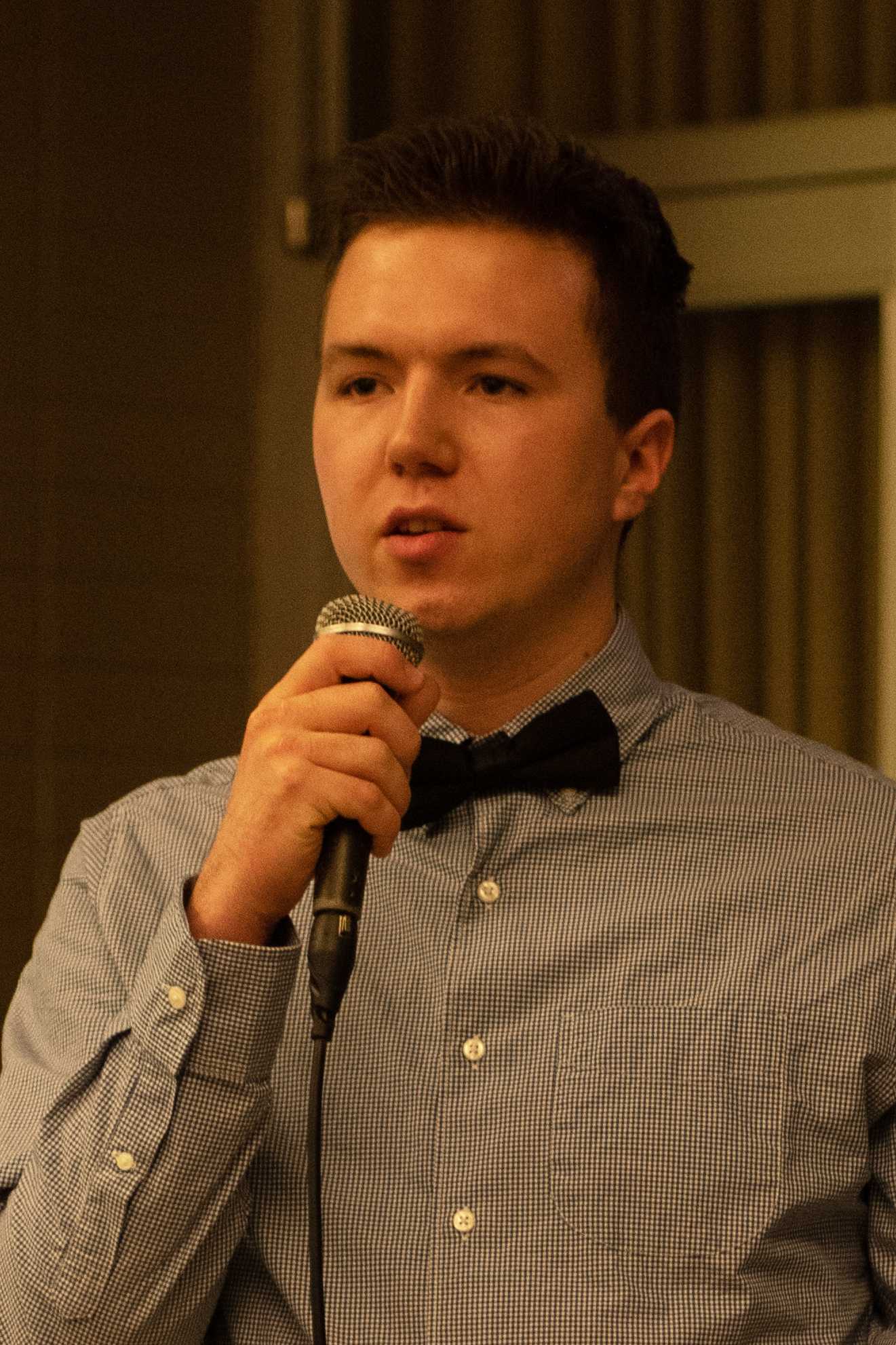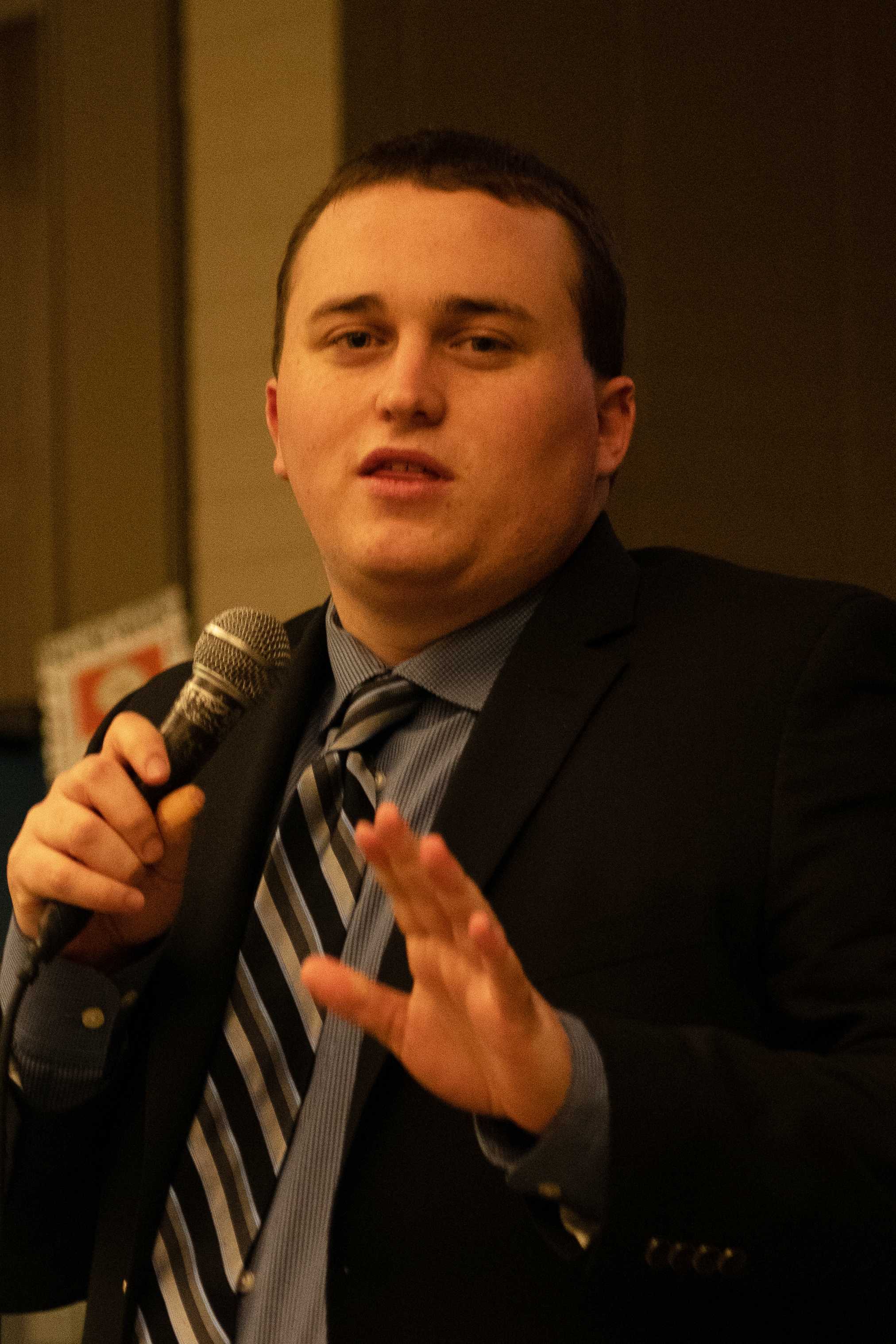Today is voting day for the ASSP General Elections. The student body has the opportunity to contribute their voices in deciding how their government will look for the following academic year.
The Falcon has a tradition of interviewing every candidate for the six open positions, and after taking a look at the public platforms and attending the forum, it publishes endorsements.
Members of The Falcon’s editorial board, which is made up of four current editors, examine the evidence and endorse candidates based off of their responses and qualifications.
Each candidate was interviewed either in person or by email and were given an equal amount of consideration for endorsement. However, it is crucial to note that the structure of SPU’s government is in such that the majority of The Falcon’s funding is provided by the Associated Students of Seattle Pacific.
This financial relationship creates an unavoidable conflict of interest. We acknowledge this existing conflict of interest, however, it in no way affects the decisions for candidate endorsements. Such decisions are made with community-focused criteria and through considering whether or not a candidate is best suited to better SPU’s community.
The endorsements are meant to hold candidates accountable as well as inform the public about candidates’ strengths, weaknesses, qualifications and positions on relevant issues.
All candidates prioritize inclusiveness, diversity and supporting students in making their voices heard on campus.
This trend towards consideration for all groups that are represented in the SPU community shows progress in the consciousness of our student body, progress that will hopefully be sustained as candidates assume their roles in office.
Vice President of Intercultural Affairs

For the position of vice president of intercultural affairs, the board has chosen to endorse Aden Yilma.
Yilma has demonstrated a clear prioritization of inclusiveness and a desire to empower students who might be traditionally marginalized.
Yilma stated in her platform that she desires to differentiate between equality and equity, citing that equality does not always help those who are left behind.
Though she did not offer many particular details as to planned goals or policies that she would implement in the role, her dedication to hearing students’ voices and responding to their needs is clear.
Yilma demonstrates creativity in her approach to increasing intercultural awareness on campus, suggesting mentor groups for people of color in STEM, events that increase multicultural awareness, and a clear openness to bringing students together to cross cultural barriers.
Vice President of Ministries

For the position of vice president of ministries, the editorial board has chosen to endorse Jose Flores.
Flores’ demonstration of passion for reaching students of diverse backgrounds and involve students in the ministry experience on campus was apparent during the forum.
Flores brings extensive ministry experience to the position, having even been in charge of a youth group last year.
Flores is also a current SMC, a position that gives him a unique perspective on how ministry is conducted at SPU.
While it would be beneficial for the candidate to further detail his perspectives on terms he has used to describe his vision such as intersectionality in terms of ministry in campus life and ecumenical worship spaces, his passion and capability for outreach to students on and off campus is obvious.
ASSP President

The position of president presented a difficult challenge to the editorial board, as both candidates seeking the position were well-qualified and demonstrated a clear passion for the job.
However, Talbot Miller clearly conveyed goals for the upcoming academic year and emphasized working with administration to address issues on campus that are important to students. His enthusiasm for prioritizing issues relevant to students and promoting inclusiveness is clearly apparent.
Miller’s disability-advocacy platform has significant relevance to students. These issues are becoming increasingly discussed across campus through various disability awareness events, thus a shift in student government’s focus to reflect this consciousness seems appropriate.
Miller’s experience as a senator-at-large and as chief justice of the Constitutional Advisory Board provides him with the necessary knowledge of the mechanics of ASSP and their relationship with the administration.
While there are significant concerns that the editorial board holds regarding the lack of specifics given by Miller as to how he will accomplish his goals of inclusiveness and accessibility, his determination in focusing on these issues indicates that his leadership will be focused in the right direction, as his platform is centered around topics that are important to students.
Executive Vice President

In regard to the position of executive vice president, the editorial board selects to endorse Nate Canny. Canny’s experience as a current senator provides him with the necessary knowledge concerning the proceedings and mechanics of senate.
Canny has shared his intentions to lead senators intentionally and with specific goals in mind. He discussed his vision of guiding senators through the process of student government by building personal relationship while at the same time being unafraid to enter into difficult conversations.
Canny explicitly stated his aims to make senate more accessible to the student population through increasing the body’s visibility.
He plans to accomplish this through pushing for senate to be held in differing locations that are more common spaces, and by having senators interact with students even from the beginning of orientation week.
Canny does give off a laid-back and relaxed aura, which can call into question his ability to lead decisively. However, he has been clear about his value of integrity and transparency in addition to his openness to feedback and using it to grow.
These characteristics demonstrate that he would be a good fit for this position. Canny’s experience, willingness to learn, enthusiasm for bringing about change, and focus on building relationships combine to make him a strong candidate.
Vice President of Campus Activities

Regarding the vice president of campus activities, Andrew Josselyn is the editorial board’s choice for endorsement. Although running unopposed, it is consequential to recognize Josselyn’s qualifications for the role.
Josselyn has previous experience working in event planning, specifically as an event programmer with STUB for this year. This experience has given Josselyn knowledge in the logistical and communication aspects of the position.
Considering that the VPCA role requires coordination between a multitude of student and university organizations, this knowledge has prepared Josselyn well for the task.
Additionally, Josselyn has shown explicit commitment to the concept of inclusive community across campus. He discussed creating events that will increase the connectivity between students and invite them into space they might have previous been left out of or been ignorant to.
Through supporting clubs and finding ways to reach out to students, Josselyn plans on finding new ways to increase the connectivity between students and culture on campus.
Though he did not provide explicit details as to how he would seek council in determining how to include diversity in campus events, he shared with the forum that in this position he will actively seek feedback from students, peers and advisors and be willing to act on advice. These qualities indicate that Josselyn can succeed in this position.
VP of Finance

There is no doubt that Liam Smith is the most qualified out of the two candidates running for the position of vice president of finance. Smith has a strong background in finance management, including experience as a member of the Board of Directors for the non-profit Sierra Service Project.
However, the editorial board approaches this endorsement with caution, as there are elements of character-based criteria that Smith does not fulfill as strongly. Smith has been known for outbursts during his senate career, as well as negative and in some cases belligerent interactions with The Falcon itself.
To be clear, the concern with Smith’s interactions with The Falcon does not stem out of disagreements over coverage or editorial opinions, but it is rather the aggressive manner in which Smith has handled these encounters.
These actions call into question Smith’s ability to interact with professional colleagues in a manner that allows for constructive conversation and action. This mix of professional qualifications and personal concerns is unsettling, as it is unknowable how these characteristics will affect Smith’s ability to conduct the VPF role with equity and grace.
However, what is knowable is that Smith is clearly well-equipped with the skills needed to perform well in the position, as well as a platform that prioritizes students through responsibly using funding that they provide in ways that are most beneficial to the SPU community.

















































































